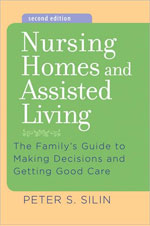Tracking Your Loved One in Care
A client of mine broke a hip about six weeks ago, and was in hospital for several weeks. On discharge, I talked to the hospital team, and arranged for him to go to the hospital out patient clinic for rehab on a weekly basis. I told the facility where he lives that that would be happening.
After he had been back a week or so, I got wind of his having had a visit from a physiotherapist. Then I heard about it again. When I confronted the manager of the home, she confirmed that he had been getting physio from the private person who comes into their building. I asked her who had authorized that. She didn't know. She told me she would ask the nurse. Then she started telling me that there were too many people involved in making decisions for this person.
Aas far as I can tell there are three people making decisions: a stepdaughter, myself, and the bank/trustee. The daughter has told them numerous times to call me. I have told them to do the same, or at least call the trustee.
So we will get this straightened out. This was not a money grab by the facility, I think they just kind of forgot about it. But again, it just shows that you need to monitor what is going on if your loved one is cognitively impaired or otherwise fragile. This gentleman is in an assisted living/licensed care facility. But it can be any kind, public or private.
The second thing this illustrates is that facilities need to know very clearly who is the decision maker, and they need to learn to develop communication lines that reflect that. Often, with a geriatric care manager, especially in Canada, this is more difficult because they are not used to dealing with us. It is a new role for them, and it takes time for them to become comfortable with it.




<< Home